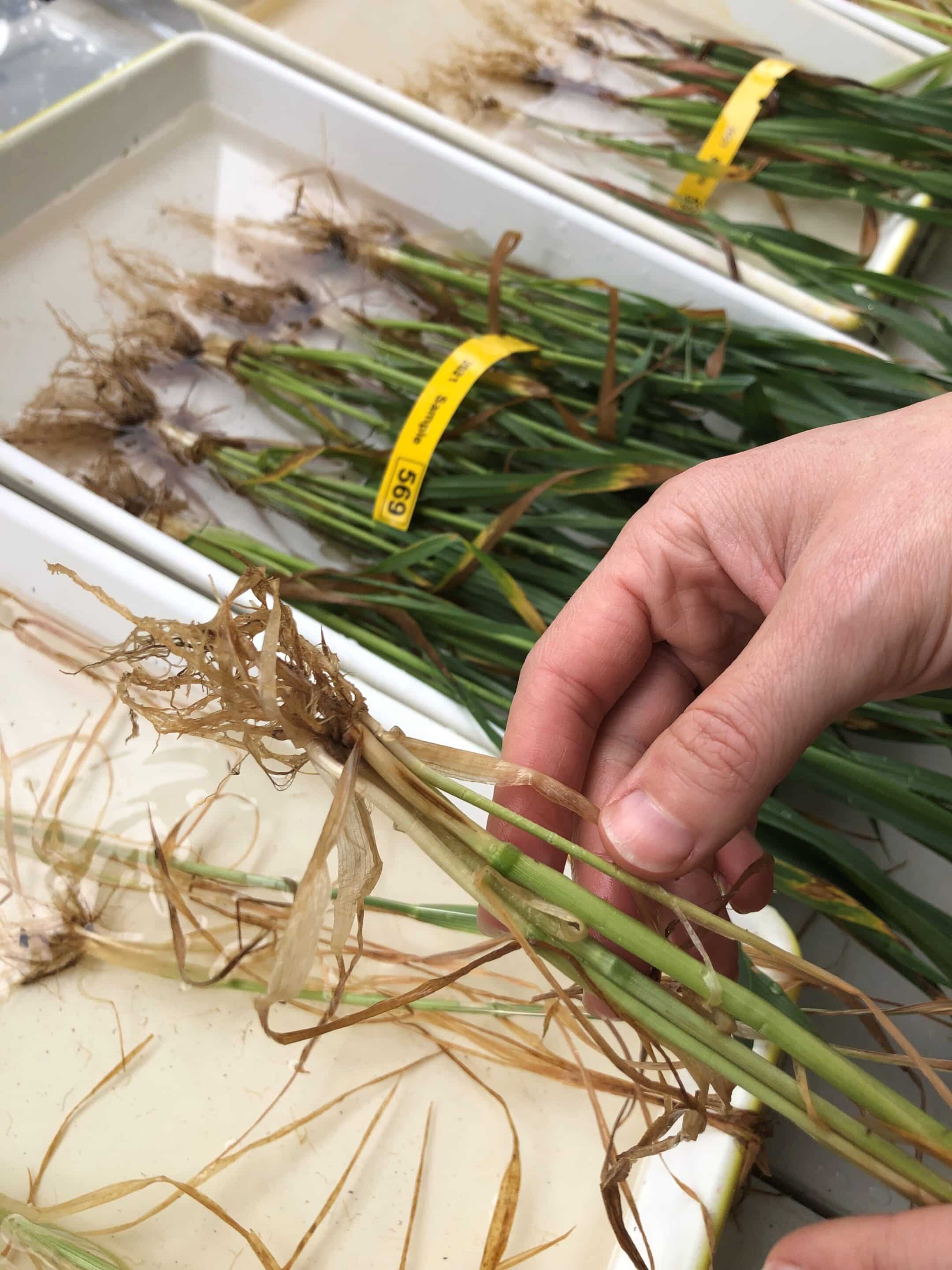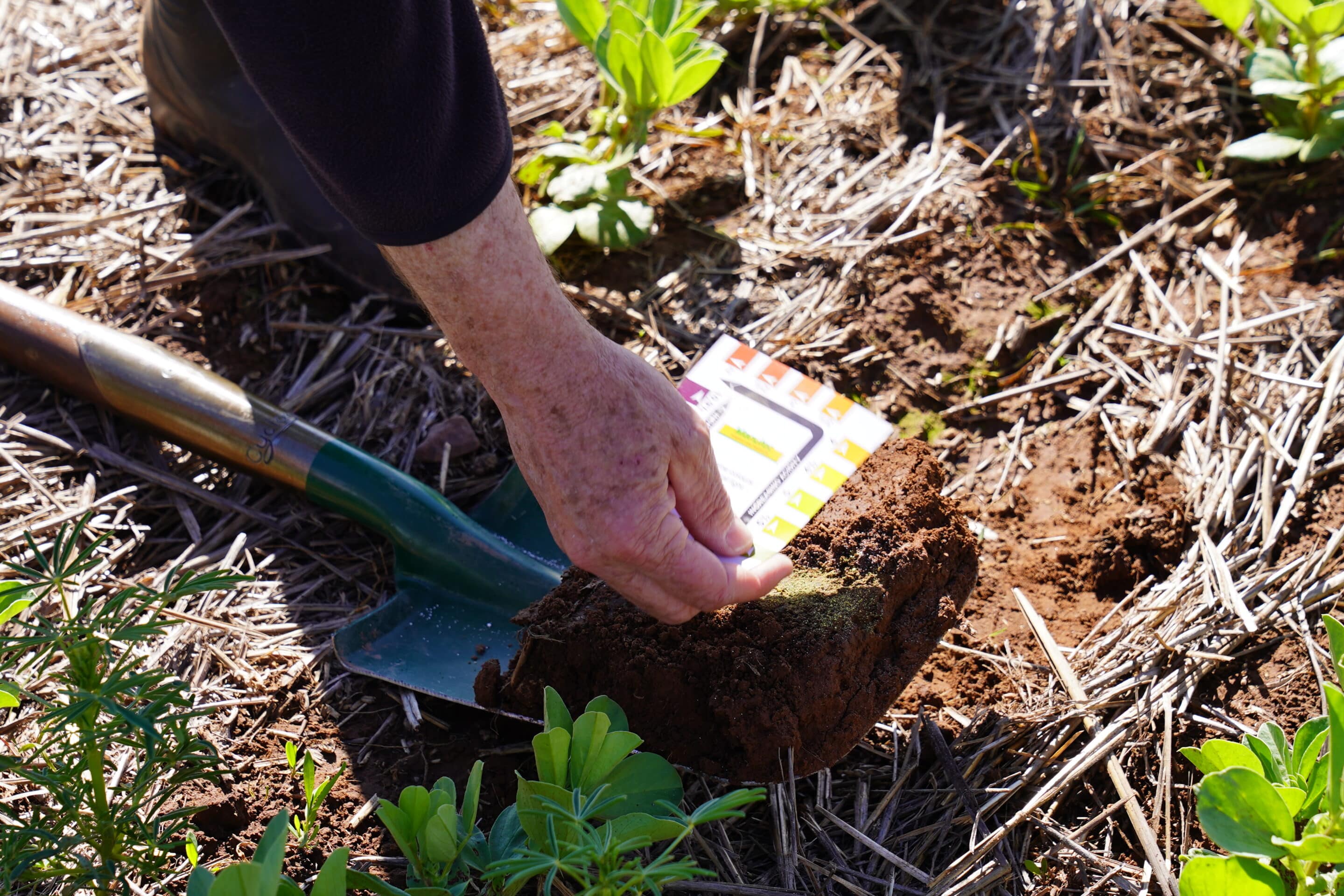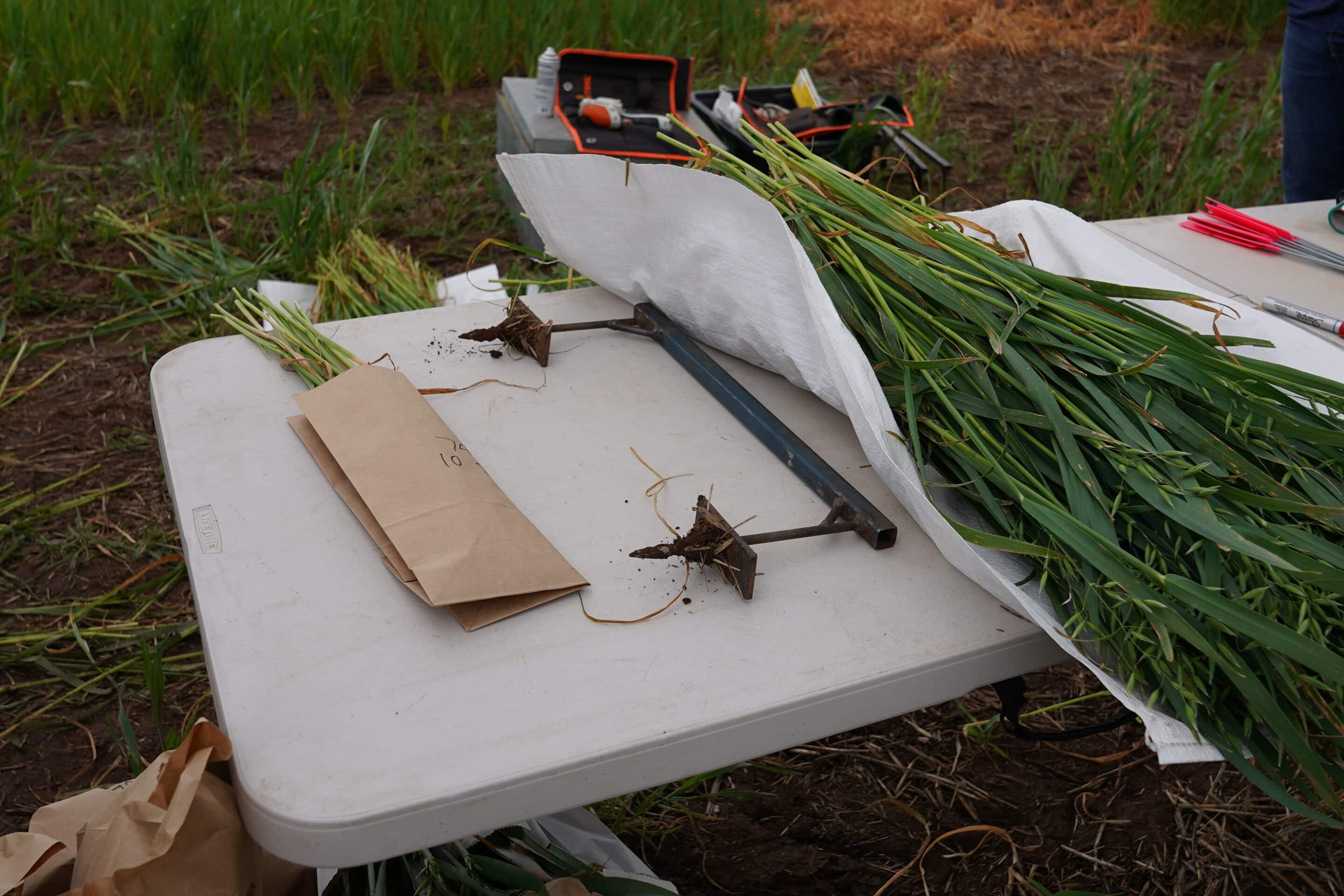START
FINISH

Summary
Nine root health workshops were delivered to 148 growers and advisers across SA in 2021 and 2022. These hands-on sessions helped improve understanding of root disease among participants. The workshops also drove on-farm practice change, with participants surveyed a year later indicating they were confident in assessing crop root health.
Background
An understanding of how to identify and diagnose the symptoms of crop root diseases is important for growers and advisers to ensure maximum productivity. One of the challenges is that crop root health is not always easy to identify from the surface and requires more thorough investigation. These interactive workshops were designed to encourage growers to monitor crop root systems and to train them to recognise the characteristic symptoms of the main soilborne diseases.
A previous SAGIT-funded project, S318, delivered eight root health workshops between 2018 and 2020, reaching 126 growers and advisers. Following these earlier workshops 100 per cent of attendees rated themselves as confident in assessing crop root health, and after one year 82 per cent reported they had made on-farm practice change after attending the workshop.
Research Aims
The core objectives of the project were to:
- Encourage growers to monitor crop root systems.
- Train them to assess and monitor crop root health using samples they have collected and others from their region.
- Learn about diagnostic support provided by SARDI.
- Provide an opportunity for one-on-one discussions with SARDI pathologists.
- Monitor the impact of the workshop and relevance of current support material.
In The Field
Supporting materials developed as part of the previous project were updated to current knowledge, including the grower manual ‘A practical guide to identifying and managing cereal root diseases in South Australia’, a three-page visual root disease symptom checker fact sheet, and a flyer detailing collection and washing of plants.
Two workshops were held in 2021, and seven in 2022, covering the upper and lower Eyre Peninsula, upper and lower South East, Kangaroo Island, Murray Mallee, Adelaide Plains, Lower North and Yorke Peninsula.
Participants were asked to bring plant samples to the workshop, which began with short presentations, before hands-on sessions inspecting the samples and reviewing prepared diseased roots. A Q&A session was then held with SARDI pathologists.
After the workshop all participants received
- A clip-on phone microscope to encourage them to dig up and inspect roots and take photos of symptoms to seek ID advice
- The updated 2022 grower manual – A practical guide to identifying and managing root diseases in South Australia
- GRDC Disease Tips and Tactics factsheets for key diseases
- 2022 SARDI Cereal and Pulse variety disease guides
- 2022 SARDI Cereal Seed Treatment Guide
- DNA pathogen level report for submitted root samples
Results
The workshops were delivered to 148 participants, comprising 70 per cent growers and 30 per cent advisers, in conjunction with local farming systems groups.
On a scale of 1-5, the average feedback score was 4.7, with comments particularly positive about the hands-on components of the event. Participants were surveyed again six and 12 months after their workshop, with 63 per cent saying they had changed the way they managed and looked for cereal root disease, and 74 per cent reporting they had used the supplied resources since their workshop. 95 per cent would recommend the workshop to others.
More than 150 plant samples were inspected across the workshops. Inspection indicated rhizoctonia and root lesion nematodes were the most common causes of damage in both cereals and pulses. Some cereal samples had symptoms consistent with take-all and crown rot, and increased levels of common root rot symptoms were observed (Bipolaris) compared to previous seasons. Root rot symptoms were commonly observed in pulses from all regions likely caused by oomycetes as the wetter 2022 season favoured spread and infection by these pathogens.
A significant amount of cereal foliar diseases (rusts, septoria and powdery mildew) were present and cereal pathologist Tara Garrard gave a short update on these diseases at several of the workshops.
29 samples were submitted for PREDICTA B, and reports summarising results were sent to growers.
Project Participants
SARDI: Dr Katherine Linsell, Blake Gontar, Dr Tara Garrard, Dr Liz Farquharson, Dr Marg Evans
AgCommunicators: Belinda Cay
The Problem
Above ground crop growth is not always a good indicator of root health but growers and advisers need to be equipped with the skills to check for and identify root diseases.
The research
A series of hands-on workshops and grower resources have enabled growers to make changes on-farm to identify root diseases such as rhizoctonia root rot, root lesion nematodes (Pratylenchus neglectus) and pythium root rot.
More information
Dr Katherine Linsell
T: 08 8429 2232
E: [email protected]
Value for Growers
For those who were able to attend the workshops, the project provided upskilling, plant inspections by SARDI pathologists, and the tools and information to inspect roots and use Predicta®B in the future.
For a wider audience two podcasts were recorded to share the learnings that attendees received. The first was funded by GRDC in September 2022 and is available from GRDC Podcasts. The second was recorded by SAGIT in August 2023 and is available on the SAGIT website.









